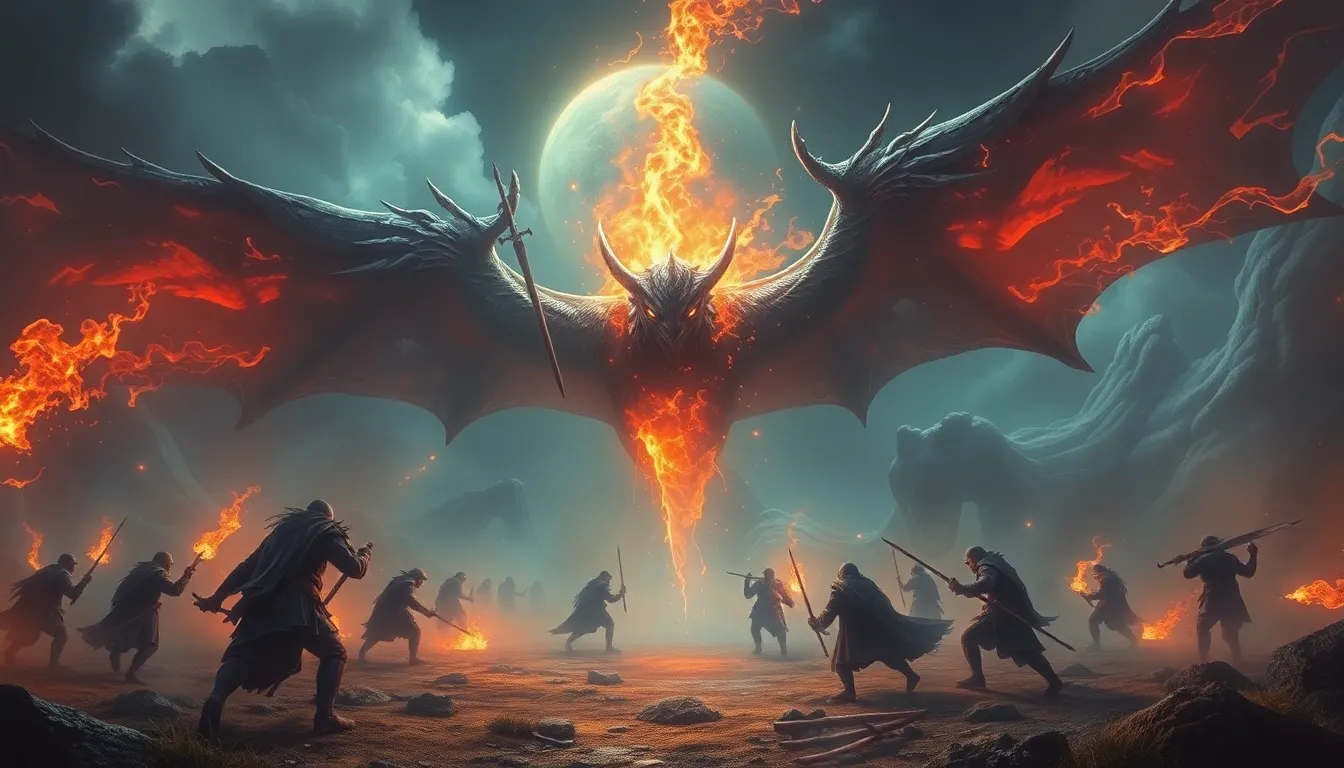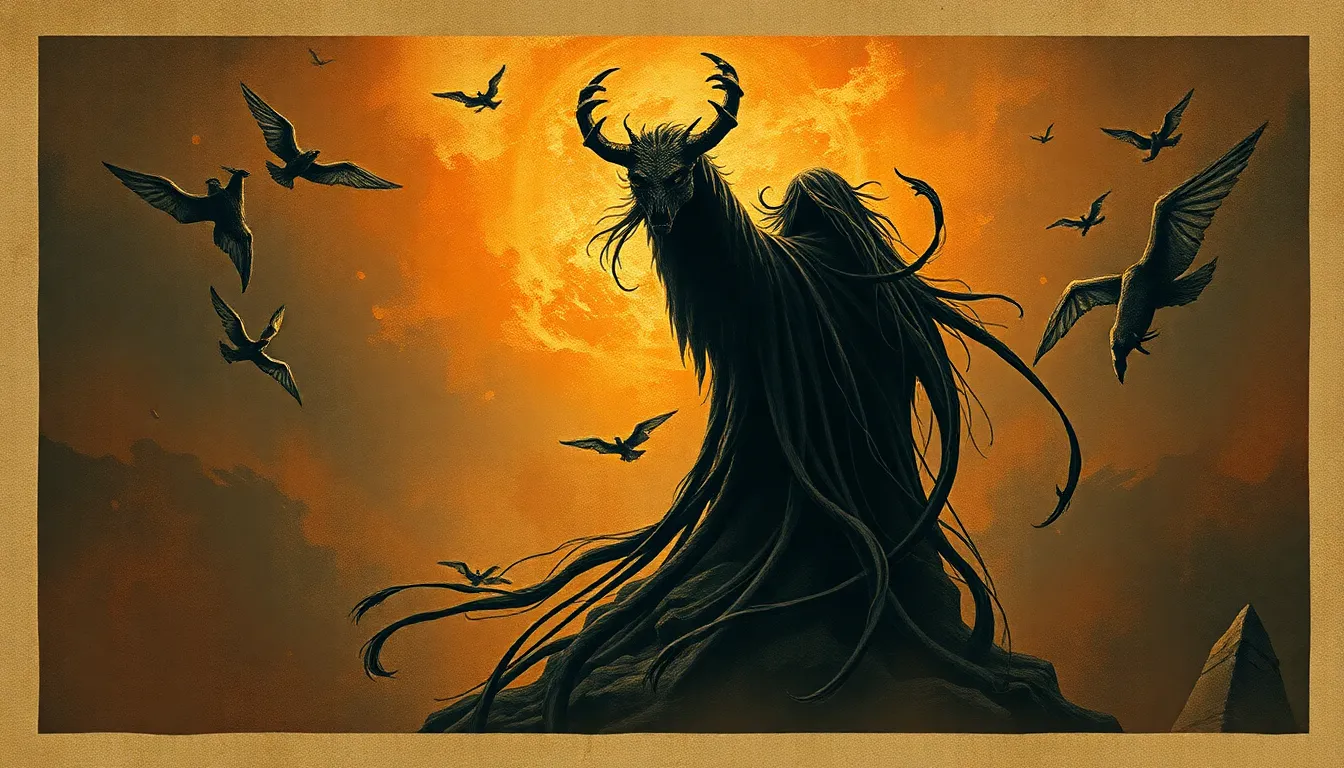Epic Legends: The Greatest Battles in Mythology
1. Introduction to Mythological Battles
Mythological battles have long captured the imagination of cultures around the world, serving as epic narratives that define the conflicts between gods, heroes, and mythical creatures. These battles are not just tales of violence; they embody the values, struggles, and moral dilemmas of the societies that created them. Each culture’s mythology offers a unique perspective on conflict, power, and the human condition.
In this article, we will explore significant battles across various mythologies, including Greek, Hindu, Norse, Egyptian, Celtic, and more. Each battle tells a story that resonates with themes of duty, destiny, chaos, order, and the eternal struggle between good and evil.
2. The Titans vs. the Olympians: Greek Mythology’s Epic Clash
The conflict between the Titans and the Olympians marks one of the most significant turning points in Greek mythology. The Titans, led by Cronus, ruled during the Golden Age until they were overthrown by their children, the Olympians, led by Zeus.
Origins of the Conflict: The battle arose from Cronus’s fear of being overthrown by his own children, leading him to swallow each one at birth. However, Rhea, his wife, saved Zeus by hiding him and giving Cronus a stone wrapped in swaddling clothes instead.
Key Figures Involved:
- Zeus: The youngest son of Cronus, who led the revolt against the Titans.
- Cronus: The leader of the Titans and father of Zeus.
- Prometheus: A Titan who sided with Zeus and is known for stealing fire for humanity.
The aftermath of the Titanomachy saw the Titans imprisoned in Tartarus, establishing the Olympians as the new rulers of the cosmos. This struggle laid the groundwork for the complex relationships and narratives that define Greek mythology.
3. The Mahabharata War: A Tale of Duty and Destiny
The Mahabharata is one of the longest epic poems in the world, detailing a great war between two factions of a royal family—the Pandavas and the Kauravas. This epic is not just a story of war but a treatise on dharma, or duty, and the moral complexities of life.
Major Characters:
- Arjuna: A skilled archer and one of the Pandava brothers, who struggles with the morality of fighting his own kin.
- Krishna: Arjuna’s charioteer and divine guide, who imparts spiritual wisdom.
- Duryodhana: The eldest Kaurava, who embodies ambition and pride.
The themes of duty and morality in warfare are central to the Mahabharata, as Arjuna faces the inner turmoil of fighting against family and friends. Krishna’s teachings during this time form the basis of the Bhagavad Gita, a philosophical cornerstone of Hindu thought.
4. The Battle of Ragnarok: The End of Norse Mythology
Ragnarok represents the prophesied end of the world in Norse mythology, a catastrophic series of events including a great battle that leads to the death of many gods and the destruction of the world.
Description of Ragnarok: This battle is foretold to occur after a series of events, including natural disasters and the release of monstrous beings from their confines.
Key Gods and Creatures Involved:
- Odin: The Allfather who leads the gods into battle.
- Thor: The god of thunder, who faces the serpent Jörmungandr.
- Loki: The trickster god who plays a crucial role in the events of Ragnarok.
- Fenrir: The monstrous wolf destined to kill Odin.
The significance of Ragnarok lies in its dual nature of destruction and rebirth, reflecting the Norse belief in the cyclical nature of existence and the inevitability of change.
5. The Siege of Troy: Love, Betrayal, and Heroism
The Trojan War, a central event in Greek mythology, is often depicted as a conflict driven by love, betrayal, and the whims of the gods. It began with the abduction of Helen, which triggered a decade-long siege of the city of Troy.
Notable Figures:
- Achilles: The greatest warrior of the Greeks whose rage and pride play a pivotal role in the war.
- Hector: The noble Trojan prince and defender of Troy.
- Helen: The cause of the war, whose beauty captivates both men and gods.
The role of divine intervention is significant, as gods and goddesses take sides, influencing the outcomes of battles and the fate of heroes. The tragic nature of the war highlights themes of honor, loyalty, and the consequences of human passions.
6. The Clash of the Titans: Egyptian Gods in Conflict
In ancient Egyptian mythology, the battle between Set and Osiris is a fundamental narrative that illustrates the struggle between chaos and order. Set, the god of chaos, murders his brother Osiris, the god of order and resurrection, leading to a series of conflicts that shape the Egyptian cosmology.
Overview of the Conflict: Set’s jealousy and thirst for power lead him to betray Osiris, resulting in Osiris’s death and dismemberment, while his wife, Isis, embarks on a quest to resurrect him.
Themes:
- Chaos vs. Order: The battle reflects the eternal struggle between disorder and harmony in the universe.
- Life and Death: Osiris’s resurrection signifies the cycle of life, death, and rebirth.
This mythological conflict emphasizes the importance of balance in the universe and the cycles of nature that govern life in ancient Egyptian beliefs.
7. The Epic of Gilgamesh: Battles Against Nature and Divine Beings
The Epic of Gilgamesh is one of the oldest known literary works, telling the story of Gilgamesh, the king of Uruk, and his adventures with his friend Enkidu. The epic includes several significant battles against both natural forces and divine beings.
Key Battles Faced by Gilgamesh and Enkidu:
- The Cedar Forest: Gilgamesh and Enkidu battle the guardian Humbaba to obtain cedar wood.
- The Bull of Heaven: After offending the goddess Ishtar, they confront a divine bull sent to punish them.
The exploration of friendship, mortality, and heroism is central to the epic, as Gilgamesh ultimately seeks immortality but learns to accept the human experience.
8. Celtic Mythology: The Battle of Mag Tuired
The Battle of Mag Tuired is a key myth in Celtic mythology, depicting the conflict between the Tuatha Dé Danann, the gods of the land, and the Fomorians, a race of monstrous beings. This battle is symbolic of the struggle for survival and dominance in the mythic landscape of Ireland.
Key Characters and Their Roles:
- Lugh: The warrior god who plays a crucial role in leading the Tuatha Dé Danann.
- Balor: The leader of the Fomorians, known for his destructive eye.
Themes:
- Renewal: The battle symbolizes the cyclical nature of life and the seasonal changes.
- Victory and Loss: Reflects the dual nature of existence, where victory can lead to new challenges.
This epic highlights the importance of community and the interconnectedness of life in Celtic belief systems.
9. The Battle of the Gods: Hindu Mythology’s Divine Conflicts
Hindu mythology is rich with battles among deities, reflecting the ongoing struggle between good and evil. One of the most significant events is the Ch


